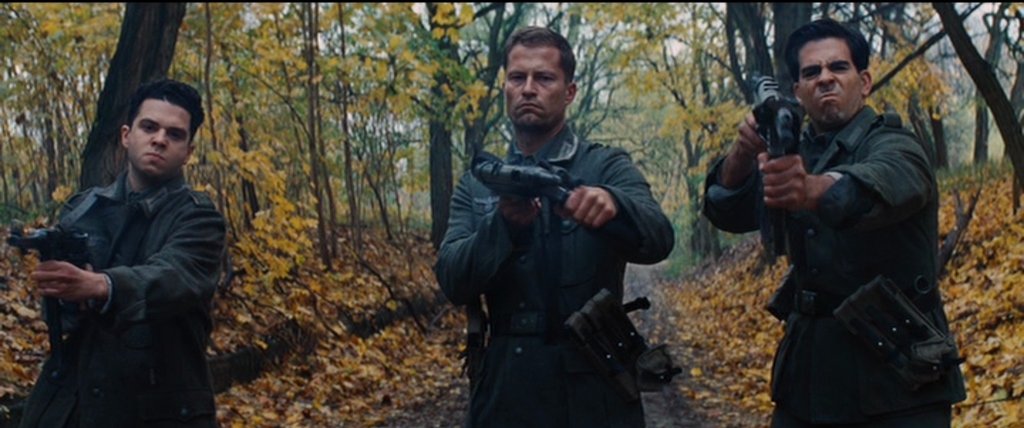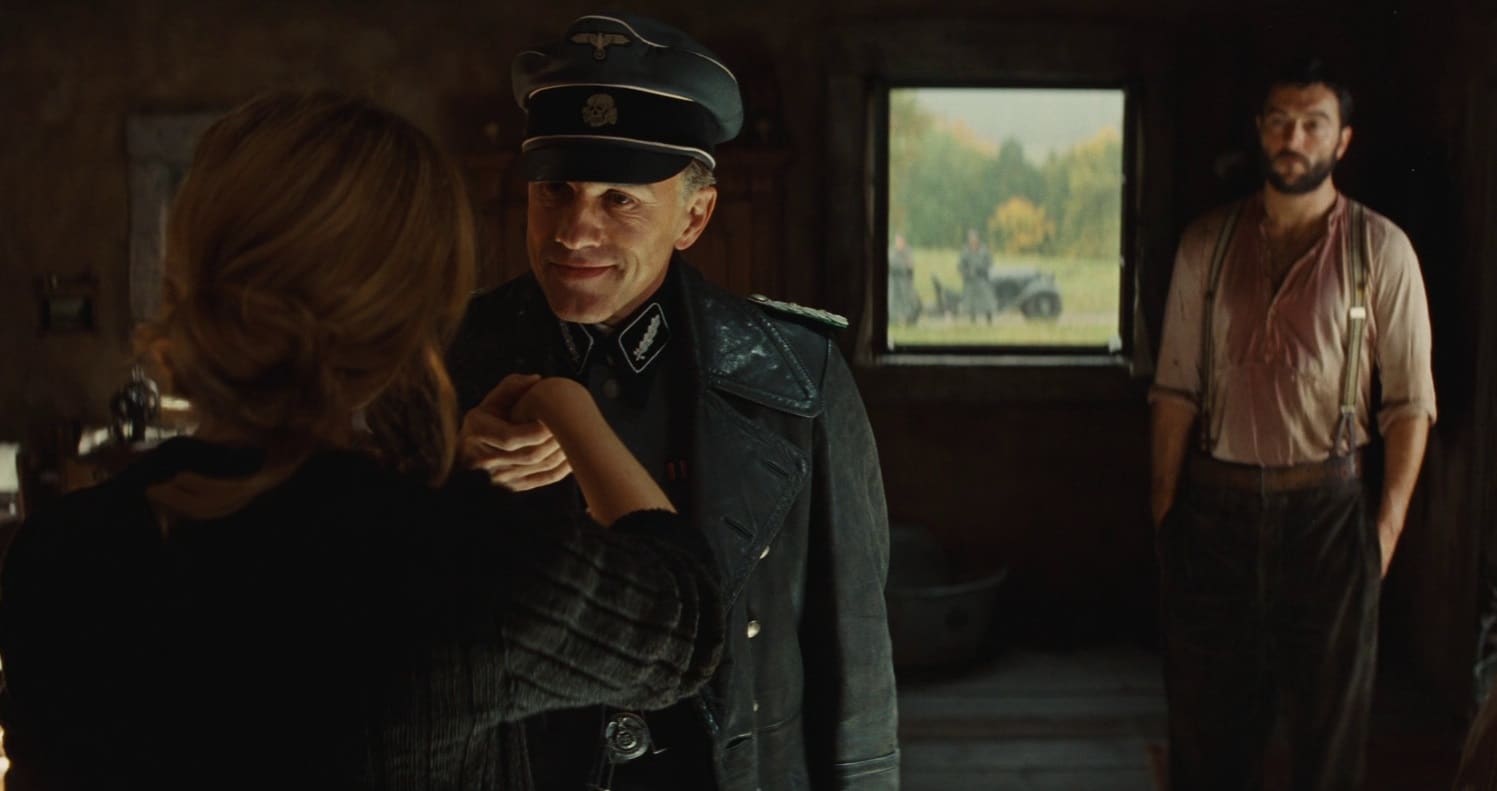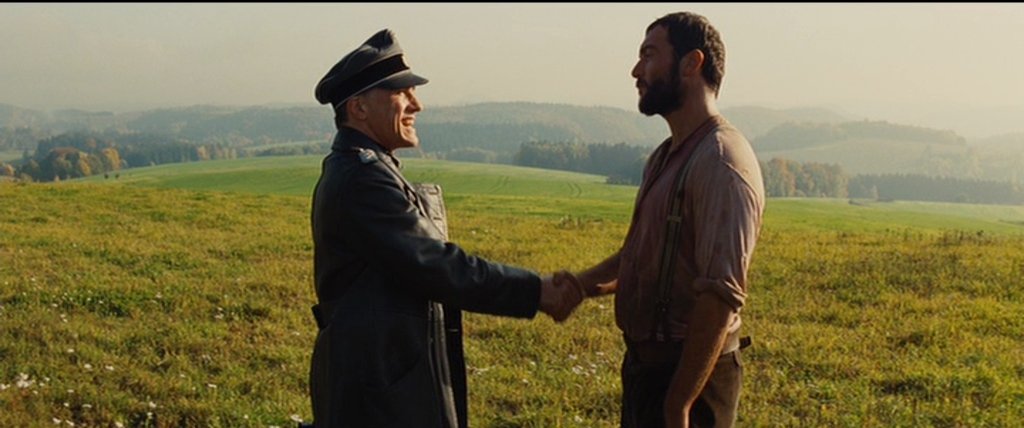🎬 Inglourious Basterds (2009)

🎬 Inglourious Basterds (2009): A Cinematic Reimagining of World War II
Inglourious Basterds, directed by Quentin Tarantino, is a bold and audacious reimagining of World War II that combines history with Tarantino’s trademark style of storytelling. Set in German-occupied France, the film weaves together multiple storylines that converge in a thrilling climax aimed at avenging the atrocities committed by the Nazis. The narrative is driven by two central plots: a Jewish-American unit known as the “Basterds” and a young Jewish woman, Shosanna Dreyfus (Mélanie Laurent), who seeks revenge for her family’s murder. 🇩🇪✡️

The Basterds, led by the charismatic Lieutenant Aldo Raine (Brad Pitt), are a group of Jewish soldiers who operate behind enemy lines, inflicting terror on the Nazi regime. Their brutal tactics, including scalping and public executions, serve as a means to instill fear in their enemies. Pitt delivers a memorable performance as Raine, showcasing a mix of humor and intensity that adds depth to his character. The Basterds’ ultimate mission is to assassinate high-ranking Nazi officials during a film premiere, an audacious plan that intertwines with Shosanna’s own quest for revenge. 🎖️🔪

Shosanna’s story unfolds in parallel, as she manages a cinema in Paris while hiding her identity. Her character embodies resilience and determination, and her confrontation with the film’s primary antagonist, Colonel Hans Landa (Christoph Waltz), adds a layer of psychological tension. Landa, known as the “Jew Hunter,” is a cunning and ruthless character, portrayed brilliantly by Waltz, whose performance earned him an Academy Award. The dynamic between Shosanna and Landa creates a cat-and-mouse game that heightens the film’s suspense. 🎬👀
Tarantino’s signature style is evident throughout Inglourious Basterds, from the sharp dialogue to the carefully curated soundtrack. The film is notable for its nonlinear narrative, intense violence, and dark humor, elements that have become hallmarks of Tarantino’s work. The infamous opening scene, where Landa interrogates a French farmer about the whereabouts of Jewish families, sets the tone for the film’s blend of tension and wit, while the climactic finale at the cinema brings all the storylines together in a spectacular and explosive fashion. 🎭🎶

Inglourious Basterds is not only a revenge tale but also a commentary on the power of cinema as a tool for storytelling and influence. The film celebrates the idea of rewriting history, allowing viewers to engage with the narrative in a way that challenges traditional depictions of the war. It poses thought-provoking questions about morality, justice, and the impact of violence, leaving a lasting impression on audiences. 🌍🕊️

In conclusion, Inglourious Basterds stands as a landmark film in Tarantino’s career and a significant entry in the World War II genre. Its unique blend of history, revenge, and cinematic flair ensures that it remains a captivating and unforgettable experience for viewers, illustrating that the art of filmmaking can transcend reality and provide a platform for exploring complex themes. 🏆🎥











